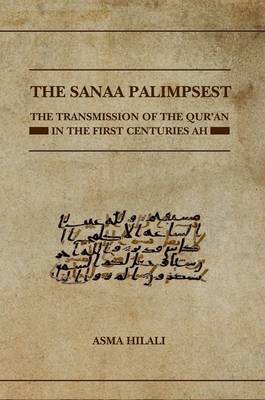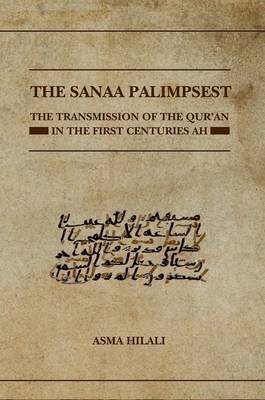
- Retrait gratuit dans votre magasin Club
- 7.000.000 titres dans notre catalogue
- Payer en toute sécurité
- Toujours un magasin près de chez vous
- Retrait gratuit dans votre magasin Club
- 7.000.0000 titres dans notre catalogue
- Payer en toute sécurité
- Toujours un magasin près de chez vous
120,95 €
+ 241 points
Description
This volume provides a new annotated edition of the two layers of the 'Sanaa palimpsest', one of the oldest Qur'an manuscripts yet discovered, together with a critical introduction that offers new hypotheses concerning the transmission of the Qur'an during the first centuries of Islam. The palimpsest contains two superimposed Qur'anic texts within two layers of writing, on thirty-eight leaves of parchment collectively numbered MS 01-27.1 in the Dar al-Makhtutat (lit. 'the House of Manuscripts') in Sanaa, Yemen. The palimpsest's lower text, which has been dated to the first century of Islam (seventh century CE), was subsequently erased and the parchment was later reused for writing another Qur'anic text, which remains visible in natural light. This upper text is thought to date from the second century of Islam (eighth century CE). The two layers were imaged in 2007 by a French-Italian mission. Both Qur'anic texts are fragmented and present aspects of work in progress. In its lower layer, the manuscript offers the oldest witness of a reading instruction in a Qur'an text and perhaps even in any Arabic text. Such peculiarities offer rare evidence as to how the Qur'an was transmitted, taught and written down in the first centuries of Islam. In this book, Asma Hilali presents an annotated edition of the texts, together with a critical introduction. These contextualise the volume within the field of Qur'an manuscript studies, and engage with the historical and institutional contexts of transmission of the Qur'anic passages. The volume also makes systematic reference to previous studies and partial editions of the same manuscript.
Spécifications
Parties prenantes
- Auteur(s) :
- Editeur:
Contenu
- Nombre de pages :
- 220
- Langue:
- Arabe, Anglais
- Collection :
Caractéristiques
- EAN:
- 9780198793793
- Date de parution :
- 29-08-17
- Format:
- Livre relié
- Format numérique:
- Genaaid
- Dimensions :
- 157 mm x 236 mm
- Poids :
- 771 g

Les avis
Nous publions uniquement les avis qui respectent les conditions requises. Consultez nos conditions pour les avis.






